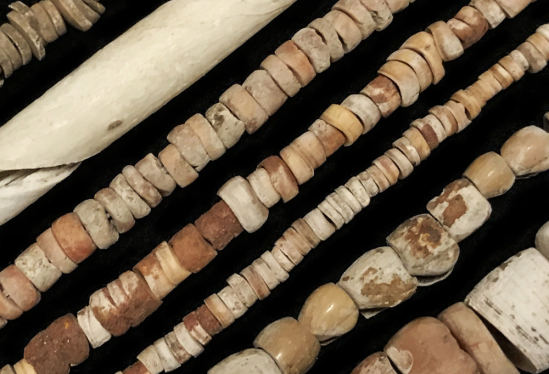Chumash Made Money 2,000 Years Ago
UCSB Archaeologist Lynn Gamble Believes Shell Bead Money Existed 1,000 Years Earlier Than Previously Thought

It’s long been known that the indigenous Chumash people of the Santa Barbara Channel produced and used shell bead money throughout the region and beyond, with archaeological discoveries as far away as Arizona and the Pacific Northwest. But the prevailing wisdom was that the currency only dated back about 800 years.
That estimate is being challenged by longtime UCSB archaeologist Lynn Gamble, the professor emerita whose latest paper in the Journal of Anthropological Archaeology argues that the money was being made in this region as early as 2,000 years ago.
“[T]his changes our thinking of hunter-gatherers and sociopolitical and economic complexity,” said Gamble in a press release about the theory, which also challenges traditional notions of “complex” versus “primitive” societies. “This may be the first example of the use of money anywhere in the Americas at this time.”
In suggesting an earlier date, the paper reassessed the archaeological criteria of what determines whether an artifact was used as currency or just adornment. “These earlier beads were just as standardized, if not more so, than those that came 1,000 years later,” said Gamble. “They also were traded throughout California and beyond. Through sleuthing, measurements, and comparison of standardizations among the different bead types, it became clear that these were probably money beads and occurred much earlier than we previously thought.”
Click here to read the full press release.
Every day, the staff of the Santa Barbara Independent works hard to sort out truth from rumor and keep you informed of what’s happening across the entire Santa Barbara community. Now there’s a way to directly enable these efforts. Support the Independent by making a direct contribution or with a subscription to Indy+.



